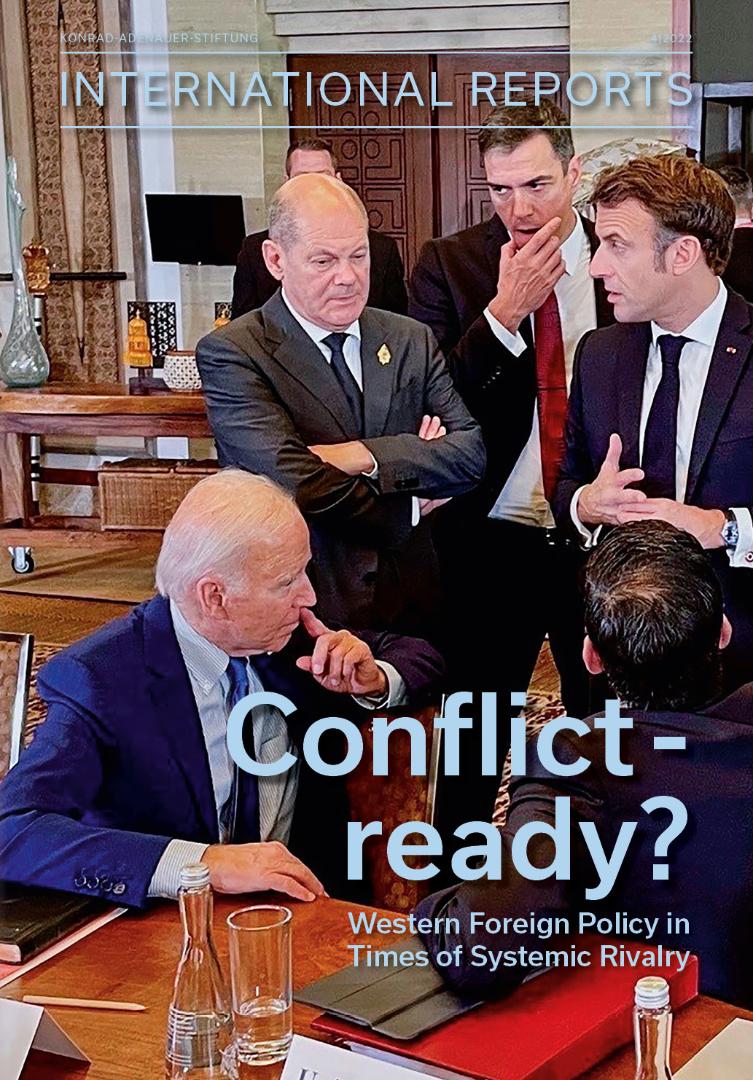It has now been more than nine months since the Russian invasion of Ukraine radically changed the perceived threat in many countries throughout Europe. In Germany, people have had to face up to questions of war and peace that seemed to be consigned to the past – many for the first time in their lives. How would we respond to an attack? Can we deal militarily with a now openly imperialist Russia? What if someone else were in the White House in this situation? And are we at risk of further adversity from China, too? Until recently, such problems were almost exclusively the domain of politicians and academics. Today, they are no longer abstract.
View table of contentsAbout this series
International Reports (IR) is the Konrad-Adenauer-Stiftung's periodical on international politics. It offers political analyses by our experts in Berlin and from more than 100 offices across all regions of the world. Contributions by named authors do not necessarily reflect the opinions of the editorial team.
Order details
Our periodical on international politics is published four times a year. We provide you with background information on what is happening in the world – free of charge. Use our registration form and with just a few clicks you can read the digital version of our political journal or order the print version in German or English.
Editor
Dr. Gerhard Wahlers
ISBN
0177-7521
Benjamin Gaul
 benjamin.gaul@kas.de
+49 30 26996 3584
benjamin.gaul@kas.de
+49 30 26996 3584

Head of the Department International Reports and Communication
Rana Taskoparan
 rana.taskoparan@kas.de
+49 30 26 996 3623
rana.taskoparan@kas.de
+49 30 26 996 3623

Policy Advisor for Communication and Marketing





